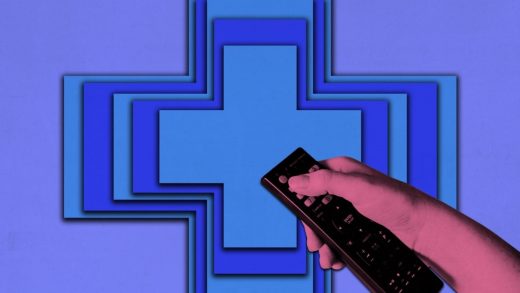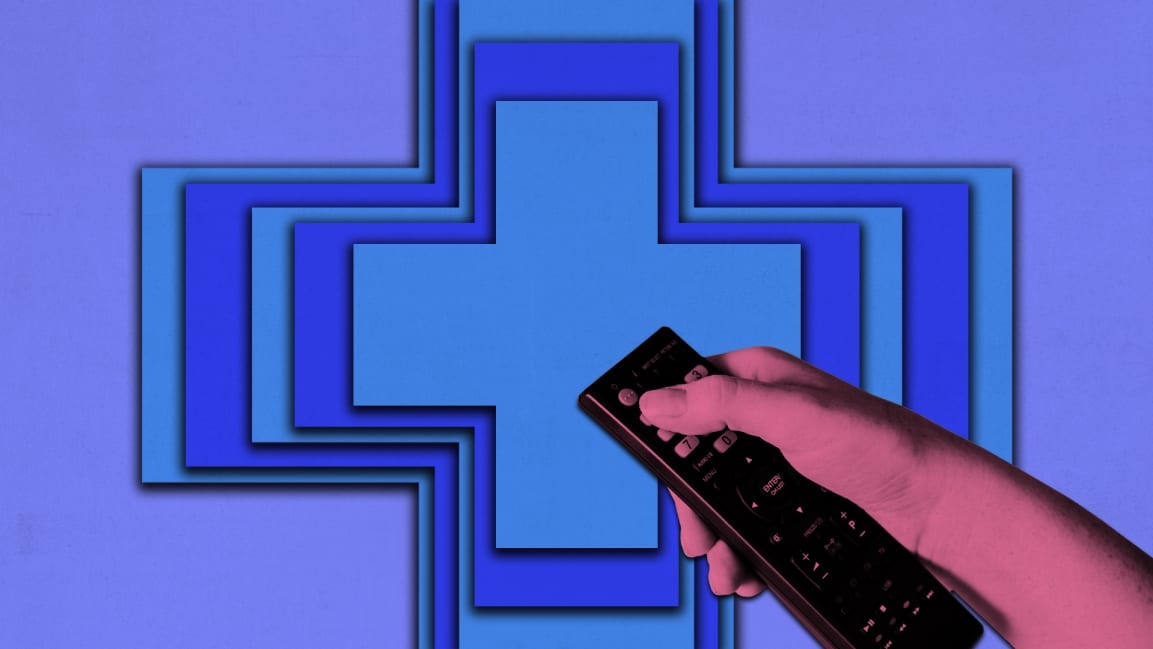Why adding ‘Plus’ to the name of every streaming service is actually good
Picture this: You’re a big time media executive. (Yes you, congrats!) Today, your job is to figure out what to call your company’s new streaming service. It takes the content from all your channels and properties, and combines that with a bunch of stuff you own the licenses for. It will also be home to a lot of new, original programming. You gather your team into the conference room and/or Zoom call.
“Okay folks, what do we call this?”
“It’s basically a channel, right?”
Well, we already have a channel. What else?”
“It means more. Here’s more of what we offer. But we can’t call it that . . . .”
“Well, it’s our movies, plus our TV, plus our digital stuff . . . hey, wait a second!”
This is why we now have approximately 437 streaming services with the word “Plus” in the name. Disney Plus. Apple TV Plus, ESPN Plus, Hulu Plus. Samsung TV Plus. BET Plus. And just last week ViacomCBS announced that it was rebranding its CBS All Access streaming service as—here we go—Paramount Plus.
Bob Bakish, president and CEO of ViacomCBS, told Variety the reasoning behind the name switch. “Paramount is an iconic and storied brand beloved by consumers all over the world, and it is synonymous with quality, integrity, and world-class storytelling,” said Bakish. “With Paramount Plus, we’re excited to establish one global streaming brand in the broad-pay segment that will draw on the sheer breadth and depth of the ViacomCBS portfolio to offer an extraordinary collection of content for everyone to enjoy.”
At first blush, this smacks of at best corporate risk aversion, and at worst sheer laziness. (That applies frankly to all the others, save for Disney.) Why can’t they come up with something original like, say . . . Peacock?
Ahhh, but there is a method to all this Plus madness.
What if it was all designed to make our lives less confusing?
Addition by subtraction
“It’s such a complex landscape out there for consumers,” says Ned McNeilage, chief creative officer at ad agency BBH Los Angeles. “There’s so much content, so much choice, so many different layers of everything. I think brands have sort of banded together with these signifiers to make it easier for people to peg what kind of product it is.”
In that spirit, Plus also plays into an emerging trend in the world of branding. “We have entered the era of brand simplification,” says Richard Black, president and general manager of New York-based marketing company Superfly. “Accelerated by the pandemic, this has caused each of us to reexamine our busy lives and ask the question, why are we doing all of this?! Brands have been ahead of the curve here most likely with rich data on their customers who are looking to simplify, find great value, and focus on what makes them happy.”
The idea is, once one or two companies establish Plus as the signal for streaming, it takes the burden of explanation off anyone else who comes afterwards. That word and symbol becomes a great shorthand for streaming service in the consumer’s mind. BET Plus? I know exactly what it is without even asking.
Which brings us to Peacock.
Peacock’s bold step
NBCUniversal’s name for its streaming service, Peacock, which launched in July 2020, is memorable and clever while still connected to NBC’s heritage.
“I think it’s the best of the bunch creatively,” says Chris Baker, an associate creative director at Forsman & Bodenfors, “but you have to take one extra step of explaining what it is. Whereas if I just said NBC Plus, you’d know exactly what I was talking about. That one extra step doesn’t seem like a lot, but that’s all UX and UI. Their whole job is about eliminating steps and these pain points.”
McNeilage says the simplified, yet repetitive, approach is common for bigger, legacy companies. “It’s probably a smart thing to do because they already stand for something in the marketplace. They don’t have to create a whole new brand. Porting that equity across seems right.”
The size of these media conglomerates should not be underestimated. “The bigger companies get, the more people have the power to say no, and when that happens, you start to shift towards a more generic name,” says Baker. “I guarantee you if Disney owned Squatty Potty, it wouldn’t be called Squatty Potty. It’d be something like Toilet Step.”
Or Elsa’s Magic Toilet Step.
This isn’t the last we’ll see of Plus. There’s bound to be more. So let’s not get all upset about it. Brands have long latched on to a certain word as shorthand for a particular product. Remember how at the dawn of the digital era, everything was Brand Name Dotcom or had an “e-” or “i” slapped on the front of it. That told you whatever it was, it was internet.
Going back even further, in 1973, Miller Lite became the first major low-calorie beer in the market, and, aside from the spelling atrocity, immediately set the standard, spawning Bud Light, Coors Light, Natural Light, Corona Light, Amstel Light, Heineken Light, and on and on until the end of time.
So the next time a new Plus hits the market, the lack of originality and creativity may aggravate you to your brand nerd core.
Just remember one thing: There’s no Peacock of light beer.
Fast Company , Read Full Story
(24)



